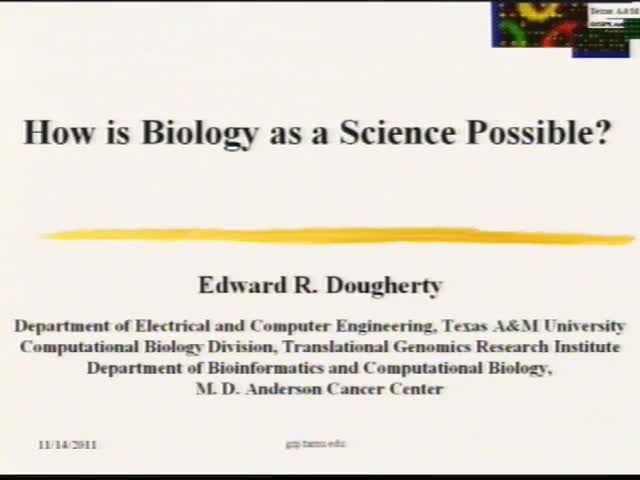How is Biology as a Science Possible?
Presenter
November 14, 2011
Keywords:
- Biology
MSC:
- 97M60
Abstract
A perusal of the contemporary biological literature involving high-throughput data sets reveals the generation of a vast amount of data and an enormous number of models (classifiers, clusters, networks) derived from this data via a plethora of algorithms. There tends to be four interrelated characteristics common to these publications: (1) no experimental deign, (2) data sets where the number of measured variables greatly exceeds the number of replications, (3) algorithms whose performance is unknown for the populations to which they are applied – and often known to work poorly when applied to a small number of replicates, and (4) models that are epistemologically meaningless because they have not been validated. Hence, we find ourselves in a position somewhat akin to that confronted by Immanuel Kant in the Eighteenth Century when he famously asked, “How is metaphysics as a science possible?” Certainly there was a lot of “metaphysical” talk in the air, but to what sureties had it led? To address the problem, Kant had to tackle the meaning of science and then appreciate what constraints had to be placed on metaphysical statements to make them “scientific.” Fortunately for us, we do not have to take on the monumental task of characterizing scientific knowledge, an endeavor that stretched from Galileo to Einstein. But we do have to consider what constraints must be placed on biological statements to make them meaningful, that is, so that they constitute biological scientific knowledge. Moreover, we need to address a critical methodological scientific issue addressed by Kant: What differentiates productive observation of Nature from “groping in the dark,” to use his phrase?
